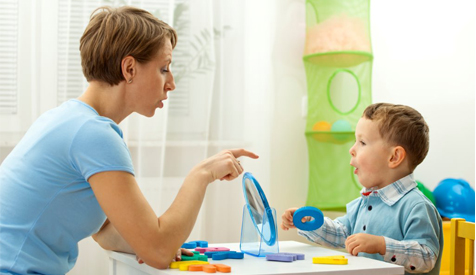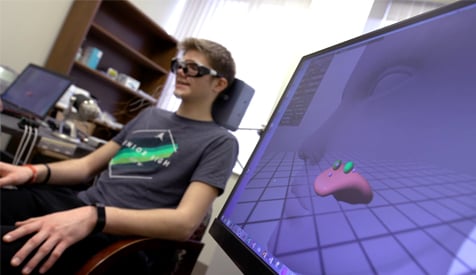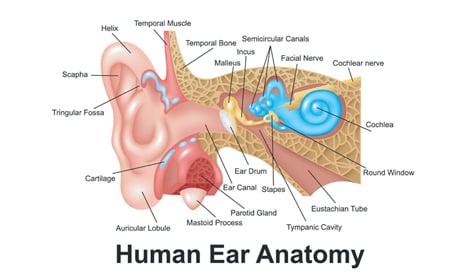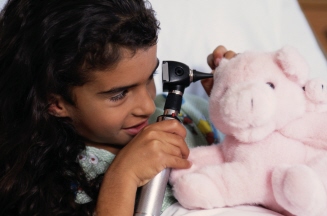Parents often wonder what they can do to help their child improve their speech and language skills. Many families seek additional private speech therapy to supplement school-based treatment.
While added speech therapy may be an advantage, it depends on the unique needs of your child. School-based speech therapy and private speech therapy differ in many ways. Before determining if your child would benefit from additional speech and language therapy, it is essential to know the difference between the two.
Read More
Tags:
Speech,
Language,
Communication,
Teens,
Stuttering,
Voice,
toddler,
talking
A concussion is a mild form of Traumatic Brain Injury (TBI) caused by a bump, blow, or jolt to the head. Concussions can also occur from a fall or a blow to the body that causes the head to move rapidly back and forth.
It is a common opinion that concussions happen mostly to football players. However, they can also occur while playing other contact sports such as soccer, as a result of a vehicular accident, or during a fall.
Read More
Tags:
Teens,
Support,
Brain Injury,
toddler
Let's face it, sometimes we give it our all and just don't see the results we desire. When you or your child has been working forever on a sound like "r" or "s" and the progress isn't happening, the results can be disappointing. I get it-- having one little speech sound error hang around comes with a whole host of problems. Whether it is jokes at your expense, anxiety meeting new people, or even bullying, you would do anything to make a change.
Read More
Tags:
Speech,
Communication,
Teens,
Voice,
talking
Good ear hygiene is often associated with the presence of earwax, commonly known as cerumen. Wax may not be visually pleasing, but it is beneficial to your health. This substance is naturally produced in the ear canal and acts as a protective lubricate against external objects such as dust, dirt, and insects.
Read More
Tags:
Hearing,
Teens,
Caregiving,
Hearing Loss,
toddler,
"ears"
Did you know…
- An estimated 40 million Americans experience speech, language, and/or hearing disorders.
- The second most common reason for special education services in public schools is speech/language impairment.
- 36 million American adults report so
Read More
Tags:
Speech,
Hearing Aid,
Audiology,
Language,
Hearing Aids,
Communication,
Hearing,
reading,
literacy,
Hearing Loss Prevention,
Teens,
Support,
Caregiving,
Hearing Loss,
Stuttering,
Learning,
Voice,
toddler,
talking,
Autism
Children who have been identified with speech-language impairments have likely established nonstandard patterns of speaking or have deficits that will require extra attention and training to improve. The speech-language pathologist (SLP) working with you and your child should serve as a "coach" to provide you with activities or homework to reinforce newly established skills and to strengthen emerging skills. One or two sessions a week is not enough, and your involvement in carryover activities is crucial to your child's communication development. Talk with your SLP about activities and games you can use at home to help.
Read More
Tags:
Speech,
reading,
literacy,
Teens,
Support,
Learning,
Voice,
toddler,
talking
Today, with the popularity of earbuds and other personal listening devices, it’s hard to know if your child or teenager is listening to music at a safe level. Back in the day, when stereo speakers were common, it was easier for parents to know how loud their children were playing music.
Read More
Tags:
Audiology,
Hearing,
Teens,
Support,
Hearing Loss,
"tinnitus"
- “Huh? What Did You Say?”
As parents, we all know that hearing and LISTENING are not the same. But, if it seems your child is experiencing hearing issues, even when it appears he/she is listening well, you should ask your child’s physician for an in-office hearing test or referral.
- Failed School Screening
School-aged children routinely have vision and hearing screenings conducted at school. Generally, parents are NOT notified unless there is a concern. If you receive a notice from your child’s school that he/she did not pass the hearing screening, please follow-up as the notice recommends.
- Teacher’s Report— Part I
Let’s face it, teachers spend A LOT of time with our children and are likely the first to notice if your child is experiencing hearing issues. Though, at times, it can be difficult to separate attention/focus from actual hearing ability, if your child’s teacher shares a concern, you should have it checked out.
- Teacher’s Report— Part II
Have you noticed a sudden drop in your child’s grades? Listening can be a tiring task when struggling with hearing. It can be easy for your child to “tune out” the teacher’s lessons, which can then impact his/her grades.
- “Why Is That Television So LOUD?”
Many kids like to raise the volume of the television. For some shows, like cartoons, it can make them seem more exciting and fun, but it could also be a sign that your child is experiencing hearing issues. If your child insists that he/she cannot hear the television at a level that you believe is typical, consider getting your child’s hearing tested.
- “Inside Voice, Please!”
Some hearing problems interfere with our ability to monitor the volume of our own voice. If your child seems to be talking either too loudly (or too softly), consider having his/her hearing checked.
- Recent Upper Respiratory Infection, Colds, Allergies, Flu
Anything that causes swelling in the back of the nose/throat area can cause secondary problems with middle ear health and hearing. Even if there is no fever or pain, your child could still have trouble hearing. If your child recently had a bad cold and, a couple of weeks later, seems to not be hearing well, have it checked.
- “I’m Hearing a Funny Sound!”
If a child reports any unusual noises in their head or ears (a ringing, rushing, roaring, beeping, hissing, etc.), particularly after being exposed to loud sound, have his/her hearing checked.
- Eagle Eyes
Children are marvelously adaptable to using what senses they can to figure out what’s going on and communicate! If you notice that your child seems unusually attentive to visual information and watching the faces of people speaking, have his/her hearing checked.
- “I Thought You Said…”
Does your child seem to mishear or misunderstand what was said? Some hearing problems are subtle and can interfere with hearing certain speech sounds. If this is happening, consider a hearing test.

Read More
Tags:
Communication,
Hearing,
Teens,
Hearing Loss
A speech and language evaluation is a normal avenue to pursue when parents or caregivers suspect difficulty with communication. Anticipation of a speech and language evaluation can bring on feelings of stress if you aren’t sure what to expect, and meeting a new health-care professional in an unfamiliar office space can be overwhelming.
Read More
Tags:
Speech,
Language,
Communication,
Teens,
Voice,
toddler,
talking
Learning and practicing how to correctly produce their “r” or “s” sound is certainly NOT what 8-12-year-olds want to be doing! Most would prefer to be playing video games or riding their bike. One way to make speech therapy and at-home practice a little easier is to use an app. These apps could be on the parent’s phone, the tween’s phone, or a family iPad.
Read More
Tags:
Speech,
Language,
Communication,
Teens,
Stuttering,
Learning,
Voice,
talking




















